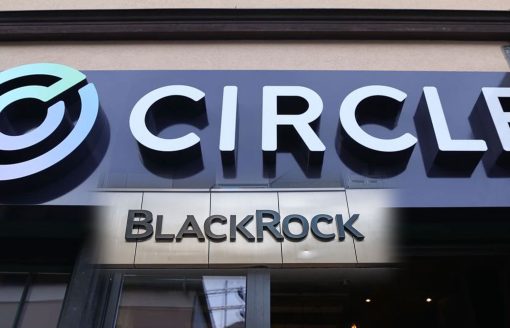The state of Hawaii was infamously hostile to cryptocurrencies. That might have been recently altered.
Crypto has gained legal status in Hawaii.
Stay in the know on crypto by frequently visiting Crypto News Today
Hawaii had long been known as being among the least welcoming states in the union to digital currencies, second only to New York, a state that possessed a Bitlicense that Hawaii was trying to embrace. However, the state administration disclosed that “digital currency enterprises will no longer require a Hawaii-issued money transmitter license to conduct business within the state” in a news release that was surreptitiously uploaded by the governor’s office last week.
“The companies will be able to continue transaction activity as an unregulated business,” the announcement continued. “However, such companies will be responsible for complying with any applicable federal licensing or registration requirements.”
Going forward, Hawaii’s regulatory posture has rapidly changed from stringent to “crypto friendly” for the unforeseeable future.
License or not to license?
The policy shift follows years of debate, research, and disastrous failures of attempted reforms in the state legislature. The Division of Financial Institutions (DFI) of the Hawaii Department of Commerce and Consumer Affairs has long argued that cryptocurrency, and specifically cryptocurrency exchanges, are subject to its jurisdiction. This jurisdiction is centered on designating cryptocurrency exchanges such as Coinbase and Binance as money transmitters, placing them in the same regulatory category as Western Union.
CryptoCaster Quick Check:
In Hawaii, money transmitters must meet stringent reserve requirements. This meant that cryptocurrency exchanges had to maintain cash reserves equal to their digital holdings. While such a regulation would make catastrophic failures like FTX unlikely, it made doing business on the islands unfeasible.
Most large exchanges simply refused to serve consumers in Hawaii.
To break the deadlock, the DFI partnered with the Hawaii Technology Development Corporation (HTDC) to create a Digital Currency Innovation Lab (DCIL). The pilot initiative established a regulatory sandbox in which exchanges may temporarily service Hawaii consumers without fear of regulatory action in exchange for data on the transactions they eventually conducted in the state.
More than 30 digital currency startups applied, 16 were admitted to the program, and twelve were eventually selected for the pilot program’s launch in 2020. In the meantime, the state began designing a license expressly for cryptocurrency businesses.
Even within the regulatory sandbox, Hawaii managed to register a reasonable level of activity on participating exchanges, servicing as many as 146,000 users and trading as much as $284 million in one quarter.
Policymaker’s conundrum
Hawaii people and authorities were eager to embrace cryptocurrency’s seemingly rapid growth and economic possibilities. This was 2000, when Bitcoin’s price was approaching $10,000 but had not yet reached its $64,000 peak (or its eventual crash), and a number of proposals were proposed in the state assembly to remove or eliminate barriers to financial blockchains.
The DFI wrote the sole measure that passed both the state Senate and House chambers. However, testimony was split.
While most people felt that some regulation was necessary, opponents said the planned cryptocurrency license, modeled after New York’s Bitlicense, was overly burdensome. The law died before reaching the governor’s desk, as did bills that would have prolonged the DCIL pilot. In the aftermath, the state encouraged consumers of the pilot crypto exchanges to sell their holdings.
No consensus remains
The state ended up unilaterally extending the pilot before it terminated in 2020, adding two more years. The majority of the participating companies stayed in the program. However, the following parliamentary session, which saw multiple proposals submitted in the digital currency field, failed to create a clear framework for allowing but regulating cryptocurrency.
Despite the disastrous year cryptocurrency had in 2022, the pilot was extended for another two years, to June of this year. Last month, the most recent session of the Hawaii state legislature convened with no cryptocurrency measures on the agenda.
Now that DFI and HTDC have announced the end of the pilot, they confirm that the state of Hawaii will delegate responsibility for managing the cryptocurrency space to the federal government. “The DCIL’s judgment reflects a commitment to balancing innovation and regulatory accountability,” DFI commissioner Iris Ikeda said in a statement.![]()
We hope you appreciated this article. Before you move on, I was hoping you would consider taking the step of supporting CryptoCaster’s journalism.
From Elon Musk, Larry Fink(BlackRock) to Jamie Dimon(JP Morgan Chase) a number of billionaire owners have a powerful hold on so much of the hidden agendas’ which eludes the public concerning the paradigm shift juxtaposed by cryptocurrency and web3 emerging technologies. CryptoCaster is different. We have no billionaire owner or shareholders to consider. Our journalistic efforts are produced to serve the public interest in crypto development and institutional disruptions – not profit motives.
And we avoid the trap that befalls much U.S. and global media – the tendency, born of a desire to please all sides, to engage in false equivalence in the name of neutrality and retail consumer protection. While fairness and transparency dictates everything we do, we know there is a right and a wrong position in the fight against fiat global banking interest and monetary reconstruction precipitated by the emerging crypto ecology.
When we report on issues like the FTX, Binance and Ripple crisis, we’re not afraid to name who or what is uncovered. And as a crypto sentinel, we’re able to provide a fresh, outsider perspective on the global monetary disruption – one so often missing from the insular American and European media bubble.
Around the world, readers can access the CryptoCaster’s paywall-free journalism because of our unique reader-supported model. That’s because of people like you. Our readers keep us independent, beholden to no outside influence and accessible to everyone – whether they can afford to pay for news and information, or not.
We thankyou for the on-going support our readers have bestowed monetarily. If you have not considered supporting CryptoCaster, if you can, please consider supporting us just once from $1 or more of Bitcoin (satoshi) or Eth, and better yet, support us every month with a little more. Scroll further down this page to obtain CryptoCaster’s wallet addresses.
Thank you.
Kristin Steinbeck
Editor, CryptoCaster
Please Read Essential Disclaimer Information Here.
© 2024 Crypto Caster provides information. CryptoCaster.world does not provide investment advice. Do your research before taking a market position on the purchase of cryptocurrency and other asset classes. Past performance of any asset is not indicative of future results. All rights reserved.
Contribute to CryptoCaster℠ Via Metamask or favorite wallet. Send Coin/Token to Addresses Provided Below.
Thank you!
BTC – bc1qgdnd752esyl4jv6nhz3ypuzwa6wav9wuzaeg9g
ETH – 0x7D8D76E60bFF59c5295Aa1b39D651f6735D6413D
MATIC – 0x7D8D76E60bFF59c5295Aa1b39D651f6735D6413D
LITECOIN – ltc1qxsgp5fykl0007hnwgl93zr9vngwd2jxwlddvqt
CRYPTOCASTER HEATMAP







